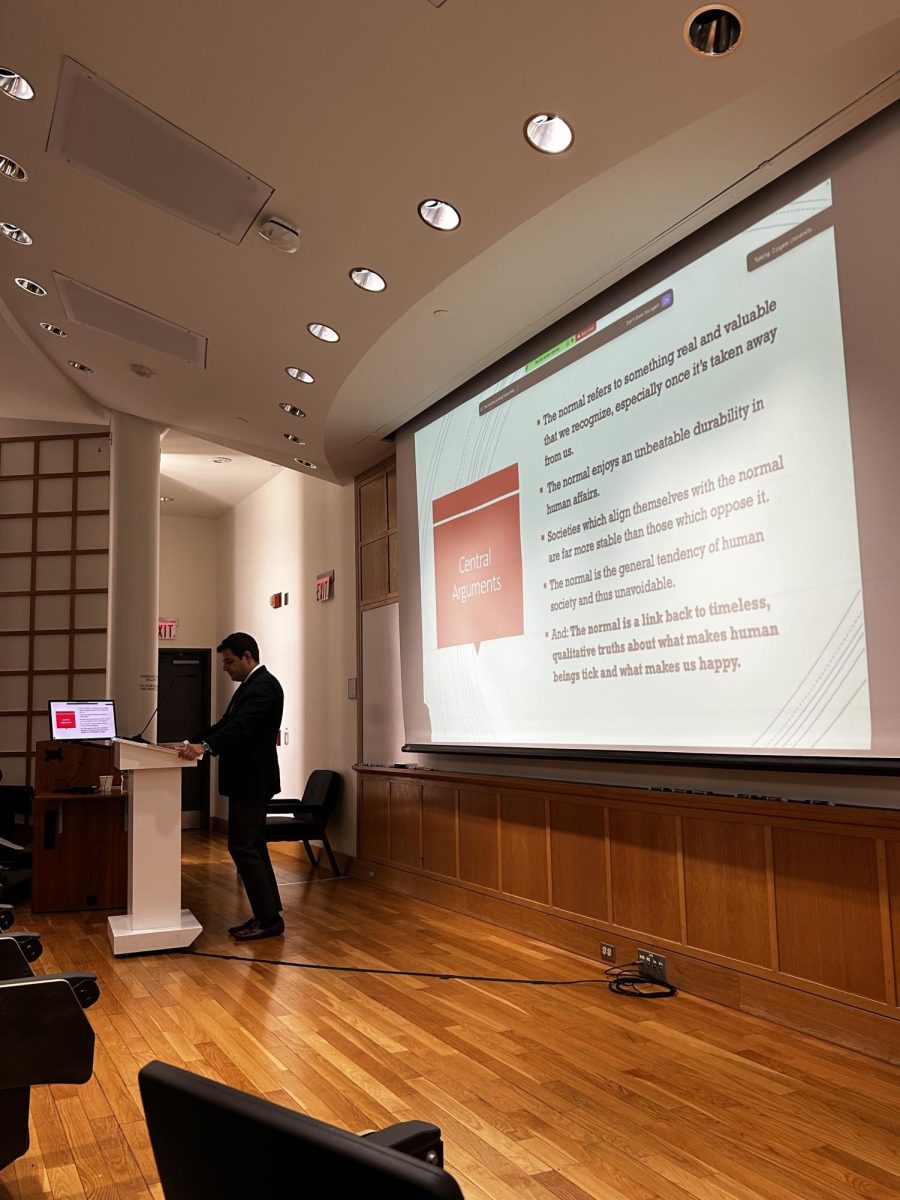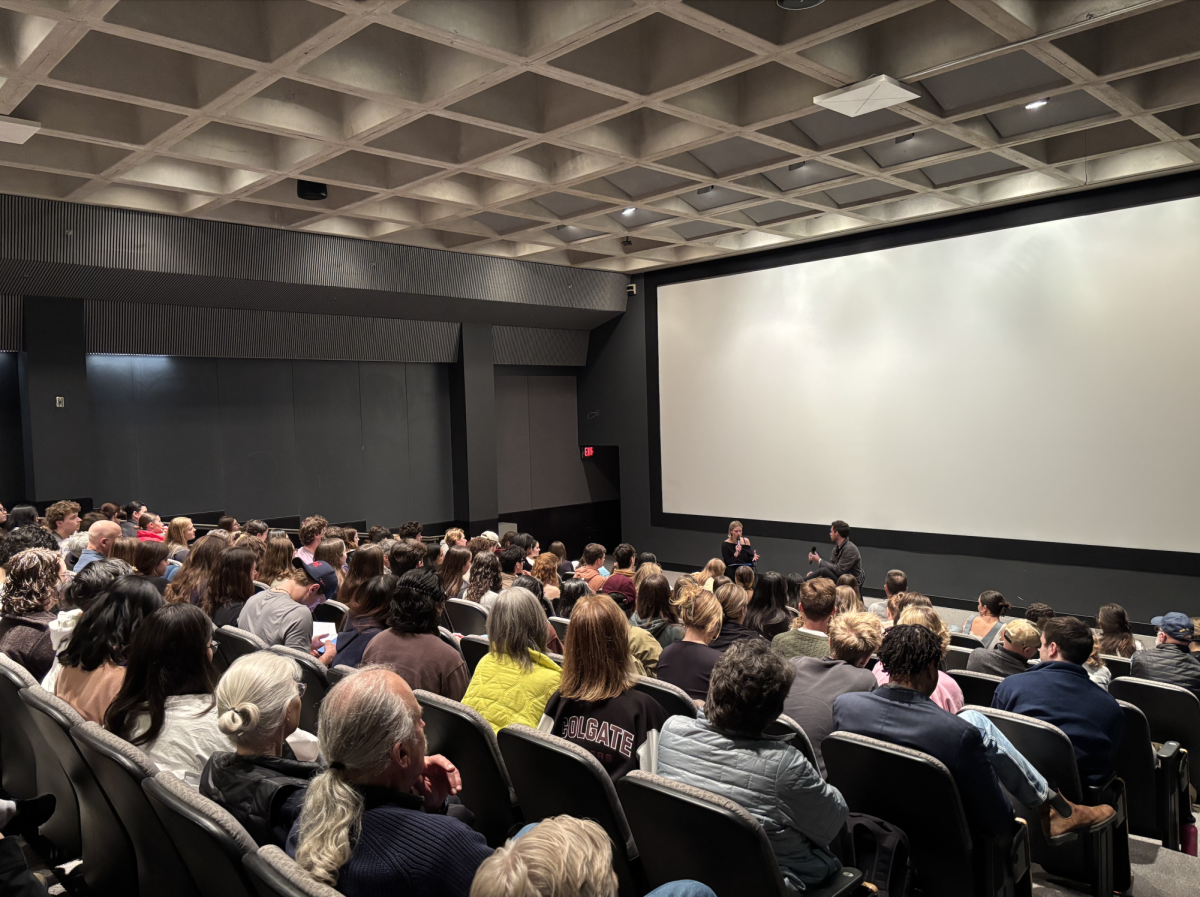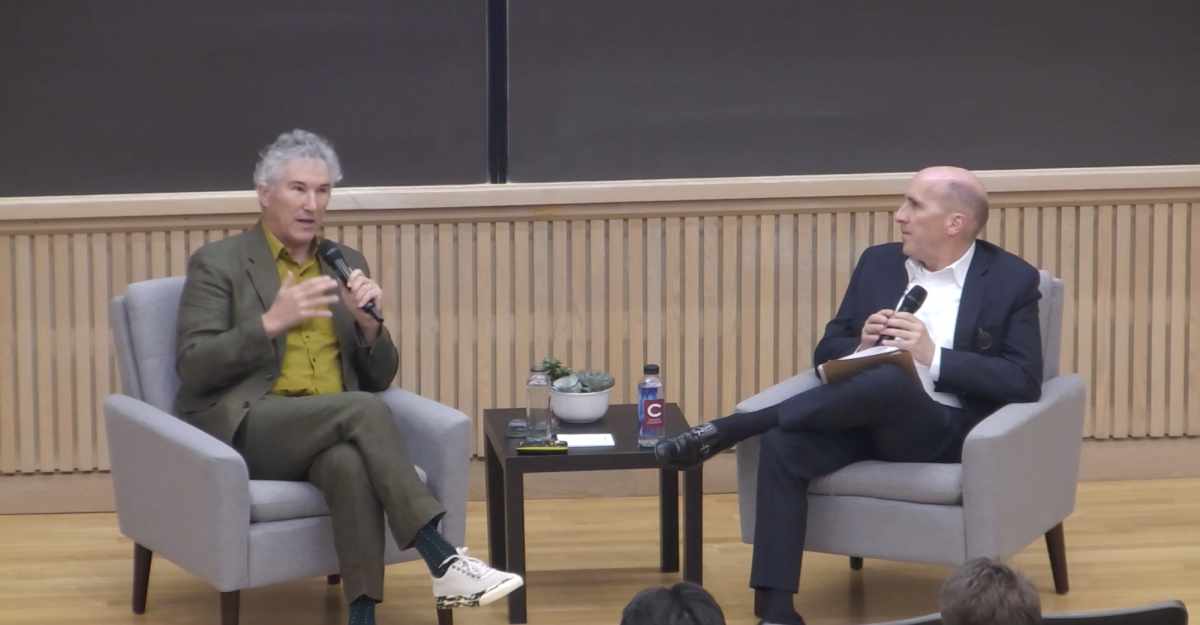The classics department hosted Dartmouth College’s Professor Paul Christesen to present his research into the origins and etiologies for the emergence of Ancient Greek nudity in athletic contexts in “Spartans Getting Naked.” Christensen’s research revealed that Greek athletic nudity emerged from the Spartan regime attempting to create a sense of communal camaraderie.
Based on information from ancient sources, the origins of athletic nudity took place between the years 650 and 550 BCE in the large Greek city-state of Sparta. Christesen explained that a means of demonstrating social egalitarianism in Spartan society was civic nudity. He asserted that the Spartans adopted this practice not in spite of its weirdness but because of it, as the Spartans wanted to create a tradition that was unique to them and would unite them by setting them apart from other groups.
“The idea of working out without any clothes on seems like a funny thing for us,” Christesen said. “But if we gave that same proposition to the Greeks, they [would look] at it very seriously. From Aristotle’s perspective, participation in athletic nudity had the same sort of social and political impact as participating in legislative assemblies […] or serving on a jury.”
Roy D. and Margaret B. Wooster Chair in the classics Rebecca Ammerman noted how Christensen highlighted methods used to uncover the purpose of athletic nudity.
“Professor Christesen addressed how evidence from our ancient literary and historical sources, in combination with that of the archaeological record, may be used to illuminate the question of why the ancient Spartans introduced the practice of nudity to their athletics,” Ammerman said.
In addition to the Spartans’ goal of social equality, they also saw physical health as a direct indicator of a person’s moral character.
“Among the Spartans, it was regarded as an extraordinary disgrace if a person seemed to have a relatively unmanly build or a large potbelly. The [chief magistrates] inspected young men in the nude every 10 days,” Christensen quoted from historian Agatharchides of Cnidus.
After his lecture, Christesen opened the room for questions from the audience. Hanna Erftenbeck, visiting assistant professor of anthropology, wondered about evidence in the archeological record for the egalitarianism mentality.
“Is there evidence in the archeological record of Sparta for this mentality of egalitarianism?” Erftenbeck asked.
“It’s a work in progress,” Christesen answered.
“There has not until very recently been a big data set to work,” Christesen said. “What’s remarkable is that there are not a lot of signs of overt affluence in Sparta who were very wealthy. There does seem to have been a commitment to not letting people use wealth to generate status through conspicuous consumption.”
The implications of Christesen’s research demonstrate the elevation of the Greek value of communal health and moderating the individual in accordance with the good of the commonwealth, opening the doors for an important discussion.
“I found his analysis of the reasons for introducing nudity to athletic practice at Sparta sound and worthy of serious consideration,” Ammerman said.










